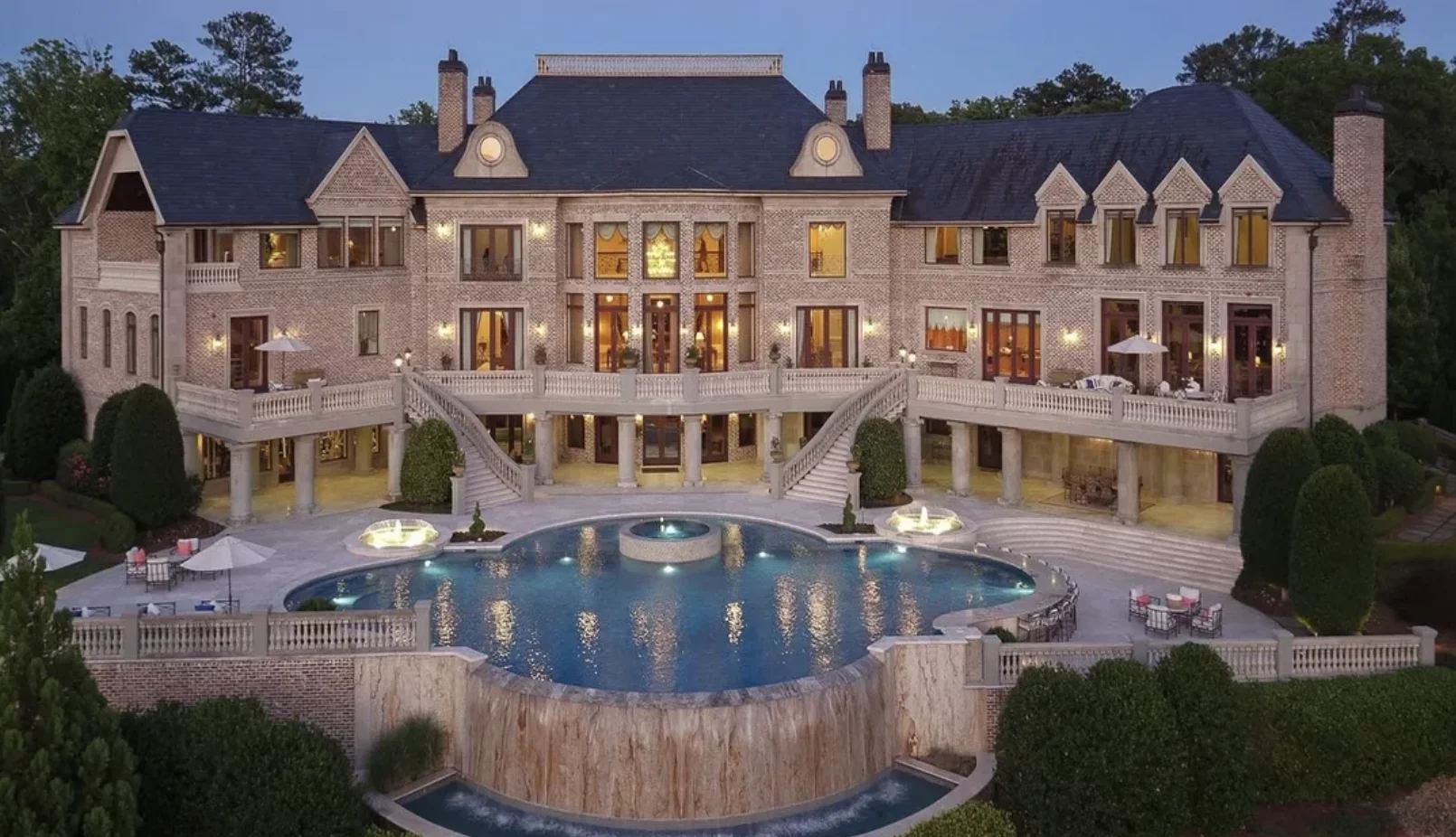Steven Furtick, the founder and lead pastor of Elevation Church, is known for his charismatic preaching, bestselling books, and ability to draw large audiences. However, one of the most talked-about aspects of his life outside the pulpit is his lavish home. The discussion around Steven Furtick house has sparked both admiration and controversy, with many questioning whether a pastor should live in such an extravagant estate.
Furtick’s house, located in Waxhaw, North Carolina, a suburb of Charlotte, has been a topic of debate since its construction. The grand property is not just a home; it is a statement that raises questions about wealth, prosperity, and the responsibilities of religious leaders. While some argue that his success justifies his lifestyle, others believe that religious figures should lead by example when it comes to modesty and humility.
The Features of Steven Furtick’s Home
The house itself is a sprawling mansion situated on a vast piece of land. Built on a 19-acre property, the home covers approximately 16,000 square feet, with around 8,400 square feet of heated living space. It features five bedrooms, multiple bathrooms, and luxury amenities that rival those of celebrity homes.
Aside from its sheer size, the house is designed to reflect elegance and comfort. The estate includes large living spaces, a swimming pool, and modern architecture that blends sophistication with functionality. Given its private and gated location, it offers a sense of exclusivity and security, something that public figures like Furtick often seek.
The price of the mansion, estimated to be around $1.7 million, adds to the controversy surrounding it. While the amount is not uncommon for wealthy individuals, the debate intensifies when considering Furtick’s role as a pastor. Many believe that spiritual leaders should lead modest lives rather than indulging in luxury.
The Funding and Financial Transparency Debate
One of the key concerns raised by critics is how Furtick was able to afford such a lavish home. Elevation Church, which he founded in 2006, has grown into one of the largest megachurches in the United States, boasting thousands of members and multiple campuses. With such a successful ministry, Furtick’s income comes from various sources, including book sales, speaking engagements, and leadership roles within the church.
Furtick has repeatedly stated that the house was paid for with his personal finances rather than church funds. He has emphasized that his earnings from book sales and other ventures enabled him to afford the mansion. Despite this, the lack of complete financial transparency has left some questioning whether donations from churchgoers indirectly contributed to his wealth.
Church finances are often a sensitive topic, especially when leaders accumulate significant personal wealth. While some defend Furtick’s success, arguing that he has worked hard to build his career, others believe that megachurch pastors should prioritize giving back rather than living in excess. The debate over how much a pastor should earn and how they should spend their wealth remains a contentious issue.
The Prosperity Gospel Connection
Furtick’s mansion also brings up discussions about the prosperity gospel, a theological belief that links faith to financial success. Many televangelists and megachurch pastors are associated with this belief, preaching that God rewards faithfulness with material wealth. While Furtick does not explicitly market himself as a prosperity preacher, his teachings often emphasize personal growth, success, and God’s blessings.
Critics argue that such teachings can sometimes blur the line between spirituality and materialism. When a pastor lives in a multimillion-dollar home, it raises concerns about whether faith is being monetized. On the other hand, supporters believe that religious leaders should not be limited to a life of poverty and that their success can be an example of God’s blessings in action.
The Response from Furtick and Elevation Church
Steven Furtick and Elevation Church have largely remained private about the mansion controversy. Furtick has addressed concerns by stating that his home is a personal decision and not connected to church finances. He has also chosen not to publicly disclose his full salary or earnings from book sales.
Elevation Church, like many other large religious organizations, operates without publicly disclosing detailed financial records. This lack of transparency has fueled speculation and criticism. However, the church continues to grow, drawing thousands of members each week, many of whom remain loyal to Furtick and his teachings.
Furtick’s defenders argue that he has the right to enjoy the fruits of his labor, just like any other successful author or speaker. They point out that his teachings have positively impacted countless people and that his wealth is a byproduct of his hard work. Nonetheless, for those who believe pastors should embody a more humble lifestyle, the mansion remains a controversial subject.
The Broader Discussion on Wealth and Ministry
Steven Furtick’s house is not just a discussion about one man’s wealth; it is part of a larger conversation about money in religious institutions. The rise of megachurches has led to an increase in wealthy pastors, many of whom live luxurious lifestyles. This has sparked debates about whether churches should impose limits on pastoral salaries or if religious leaders should be more transparent about their financial dealings.
In contrast to leaders like Pope Francis, who promotes simplicity and humility, many megachurch pastors lead extravagant lives, often justifying their wealth as a testament to faith. The discussion around Furtick’s house reflects a broader societal debate on how much wealth is appropriate for spiritual leaders.

The Lasting Impact of the Controversy
Despite the criticism, Steven Furtick’s influence remains strong. His church continues to attract massive crowds, and his books sell millions of copies. While his house has been a point of contention, it has not significantly diminished his following. The controversy surrounding his wealth and lifestyle is unlikely to fade, but it has not stopped his ministry from growing.
Ultimately, the debate over Steven Furtick’s house is a reflection of differing perspectives on wealth, religion, and leadership. For some, his mansion is a symbol of success and God’s blessings. For others, it raises ethical concerns about the responsibilities of religious leaders. Whatever the viewpoint, the discussion surrounding his home remains one of the most talked-about aspects of his public life.




















